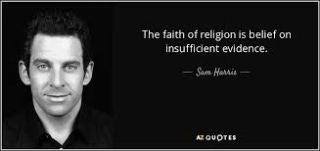The notion that we should always and everywhere apportion belief to evidence in such a way that we affirm only that for which we have sufficient evidence ignores the fact that belief for beings like us subserves action. If one acted only on those beliefs for which one had sufficient evidence one would not act as one must to live well.
When a young person believes that he or she can do such-and-such, it is almost always on the basis of insufficient evidence. And yet such belief beyond the evidence is a sine qua non of success. There are two necessary conditions of success in life: one must believe that what one proposes to do is worth doing, and one must believe that one is capable of doing it. In both cases one believes and acts on evidence that could hardly be called sufficient.
As a young man observing my professors, I said to myself, "I can do this and I can do it better!" (It can be advantageous to have mediocre teachers!) My belief in myself was not without evidence but surely was not grounded in sufficient evidence. (Suppose we agree that sufficient evidence for proposition p renders p more likely than not.) My believing in myself was a believing well beyond the evidence. But my belief in self, even unto cockiness, was sine qua non for my success. Effort follows belief. In cases like these, belief is a matter of the will: one chooses to believe that a certain good is attainable despite the insufficiency of the evidence the intellect can gather at the time.
This strikes me as a good maxim: Don't let insufficient evidence prevent you from believing what you are better off believing than not believing.
Let's consider another example.
The New Neighbors
What evidence do I have that my new neighbors are morally decent people? Since they have just moved in, my evidence base is scant indeed and far from sufficient to establish that they are decent people. Should I suspend judgment and behave in a cold, skeptical, stand-offish way toward them? ("Prove that you are not a scumbag, and then I'll talk to you.") Should I demand of them 'credentials' and letters of recommendation before having anything to do with them? Either of these approaches would be irrational.
A rational being wants good relations with those with whom he must live in close proximity and whose help he may need. Wanting good relations, he must choose means that are conducive to that end. Knowing something about human nature, he knows that 'giving the benefit of the doubt' is the wise course when it comes to establishing relations with other people. If you begin by impugning the integrity of the other guy, he won't like you. One must assume the best about others at the outset and adjust downwards only later and on the basis of evidence to the contrary. But note that my initial belief that my neighbors are decent people — a belief that I must have if I am to act neighborly toward them — is not warranted by anything that could be called sufficient evidence. Holding that belief, I believe way beyond the evidence. And yet that is the rational course.
So again we see that in some cases, to refuse to believe beyond the evidence is positively irrational. A theory of rationality adequate for the kind of beings we are cannot require that belief be always and everywhere apportioned to evidence. We are not mere observers of life’s parade; we also march in it. Clifford’s maxim is fit only for mere spectators. Like it or not, our undeniable spectatorship is embodied and interested. Inter esse: our being is a being between the angelic and the animalic. A theory of rationality adequate to what we are should accommodate this fact.




